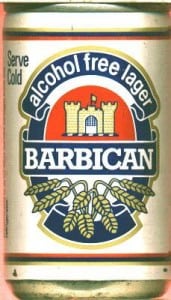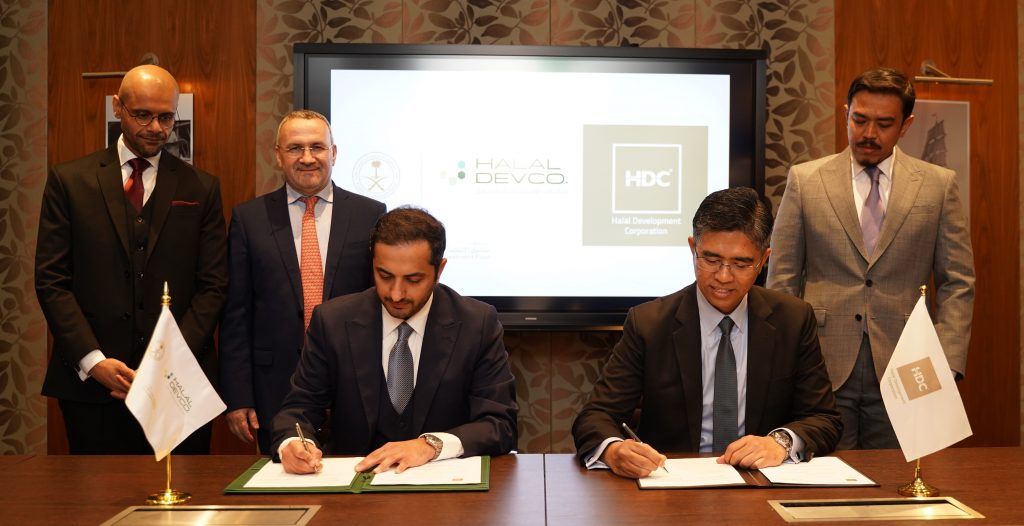 Nov. 20 (Bloomberg) — Eight years ago, Taleb Mohamad Almahmoud started importing a non-alcoholic beer popular in the Middle East to Malaysia. Now he’s bringing more than 300,000 bottles of Dubai-brewed Barbican into the country a month.
Nov. 20 (Bloomberg) — Eight years ago, Taleb Mohamad Almahmoud started importing a non-alcoholic beer popular in the Middle East to Malaysia. Now he’s bringing more than 300,000 bottles of Dubai-brewed Barbican into the country a month.
“There are many Arabs here and they like the drink because there’s no alcohol,” the Syrian-born Almahmoud said in a Nov. 17 interview near his shop in downtown Kuala Lumpur that also stocks spices, couscous, pickled olives and Turkish coffee. “Malaysians like it too.”
The popularity of halal products such as Barbican that comply with the Quran’s tenets helped drive a 4.6 percent gain in the SAMI Halal Food Index of shares this year, beating a 0.2 percent rise in the Bloomberg World Food Index. The industry’s expansion is also flowing through to debt markets, with the Malaysia International Islamic Financial Centre estimating companies involved in Shariah-compliant food, textiles, tourism and healthcare have sold $5 billion of sukuk to date.
The outlook for the $2 trillion global halal industry that also includes fashion and entertainment is underpinned by a worldwide Muslim population that the Pew Research Center sees growing at twice the rate of non-believers through 2030. Demographics like that have lured Switzerland’s Nestle SA, the world’s biggest food company, which markets Shariah-compliant noodles and breakfast cereals.
‘Obvious Conduit’
“Halal is a huge industry and the growth rate is massive,” Baiza Bain, director at Islamic finance consultancy Amanie Advisors Pty Ltd. (Australia) in Melbourne, said in a Nov. 17 phone interview. “Companies are making sure that they adopt the inclusiveness policy that will broaden their market.”
Spending by Muslim consumers on halal products and services worldwide is forecast to increase 52 percent to $2.47 trillion by 2018 from 2012, according to a September report by the Kuala Lumpur-based MIFC.
“The relationship between Islamic finance and halal industries is mutually beneficial,” the MIFC said in the report, adding that there are opportunities to invest surplus funds throughout the value chain.
Nestle (Malaysia) Bhd. ships its products to more than 50 countries and may soon start exporting to Europe and South America, Zainun Abdul Rauf, executive director for corporate affairs, said in a Nov. 17 e-mail interview from Selangor state near Kuala Lumpur.
Sukuk Sales
The share price of the company, which set up a 700 million ringgit ($208 million) sukuk program in 2003, has risen 0.9 percent this year, beating a 2.3 percent drop in Malaysia’s benchmark stock index.
Worldwide sales of bonds that comply with Islam’s ban on interest have increased tenfold in the last decade. Issuance has reached $39.9 billion so far this year, 13 percent more than at the same point in 2013, data compiled by Bloomberg show.
Ajinomoto Co., Japan’s third-largest food company, sells Shariah-compliant food seasonings and drink sweeteners. The Asian nation and Spain have held halal summits this year to explore ways to develop the industry, while the U.K. plans to set up a business park to produce Shariah-compliant meat, according the MIFC report.
As well as prohibiting products that include alcohol and pork and banning gambling, Islamic tenets require that animals be slaughtered in a particular way accompanied by the recitation of a prayer.
Huge Demand
Halal Industry Development Corp., a Malaysian government agency, estimates the global industry excluding financial services exceeds $2 trillion and will grow 4 percent to 5 percent annually. Demand for Shariah-compliant products will come from established centers such as the Middle East as well as emerging markets including India, Pakistan and Bangladesh, said Chief Executive Officer Jamil Bidin.
“The global demand is huge,” he said in a Nov. 13 interview near Kuala Lumpur. “Many non-Muslim countries are participating in this because they see that halal is big business.”


